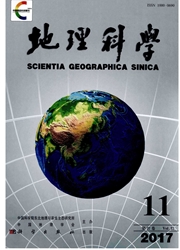

 中文摘要:
中文摘要:
人口集聚产生规模效益,从而带来经济增长,这是大多数实证研究得到的结果,但随着城市规模的不断扩大,一系列城市问题逐渐凸显出来,对城市发展产生了一定影响。因此,越集聚是否越好逐渐成为研究的关注点。本研究从人口集聚的对立面——人口分散角度来探讨是否特大城市已出现集聚不经济。通过对34个特大城市的实证研究,结果发现人口分散对经济增长具有显著促进作用,也就意味着集聚可能对经济增长产生了副作用。研究还发现分散对经济增长不是一种持续的促进作用,而是呈现出倒U型趋势,即过度分散并不利于经济增长。
 英文摘要:
英文摘要:
Concentration of population generates economy of scale and economic growth, which most empirical studies have confirmed. But cities constantly expand, a series of urban issues become increasingly prominent, which influence urban development. Thus, it becomes the focus of study whether more agglomeration yields better outcome. This study explores whether the mega-cities has suffered agglomeration diseconomies from the perspective of population disperse. Through empirical research of 34 mega-cities, this study finds that disperse of population significantly promotes economic growth, which means agglomeration may produce adverse effects on economic growth. Besides, the effects of population disperse on economic growth showing inverted U-shaped trend, which means excessive disperse is not conducive to economic growth.
 同期刊论文项目
同期刊论文项目
 同项目期刊论文
同项目期刊论文
 期刊信息
期刊信息
